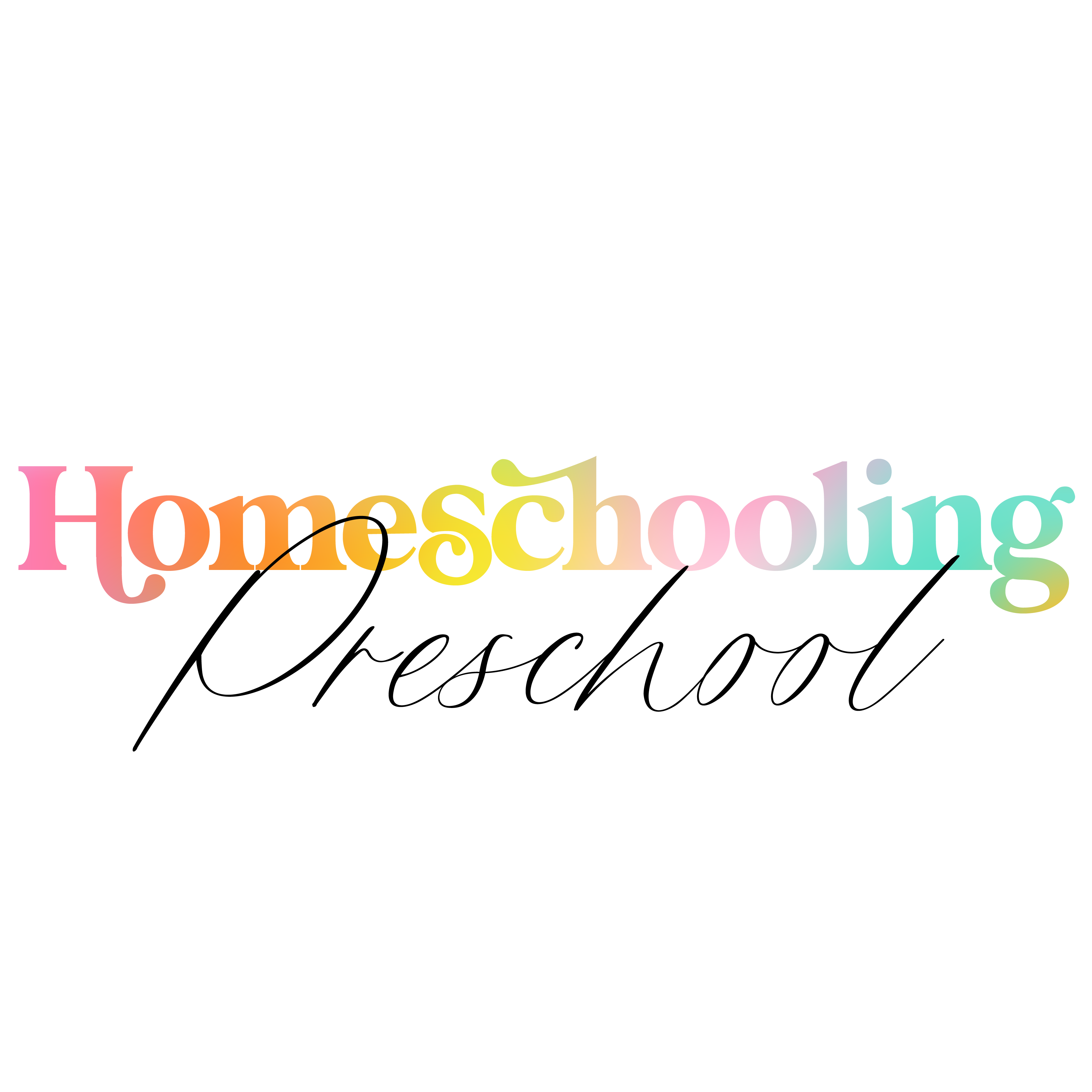Sensory bins are great for little ones, but figuring out what to fill them with isn’t always easy.
Keep reading to get 50+ sensory bin ideas.

This article may contain affiliate links to products that may help you when homeschooling preschool.
What Are Sensory Bins?
Sensory bins are shallow bins that are filled with different items.
One time it could be dry oats; another time it could be shredded paper.
There are toys, measuring cups, tweezers, and other odds and ends that are added to allow preschoolers to explore the items, and medium, and to have fun.
Why You Should Use Sensory Bins with Preschoolers
Many different senses are engaged when preschoolers use sensory bins.
They feel the new textures, smell it (especially if it is something like shaving cream), and see how the sensory bin fillers move and interact with the odds and ends that are in the bin.
Preschoolers are able to learn how things move and can use their imagination while playing in a sensory bin.

This article may contain affiliate links to products that may help you when homeschooling preschool.
They also get exposed to new things that they may not have been able to experience before.
Seeing how paper shreds move when poured is different than how rice, dry beans, or whipped cream move when poured.
Sensory bins can provide a calming environment for some kids.
They focus on the sensory bin, which in turn helps them to regulate their emotions.
Children’s language development can be promoted with sensory bin play.
New ways of describing things can be introduced to help preschoolers verbalize what they are feeling.
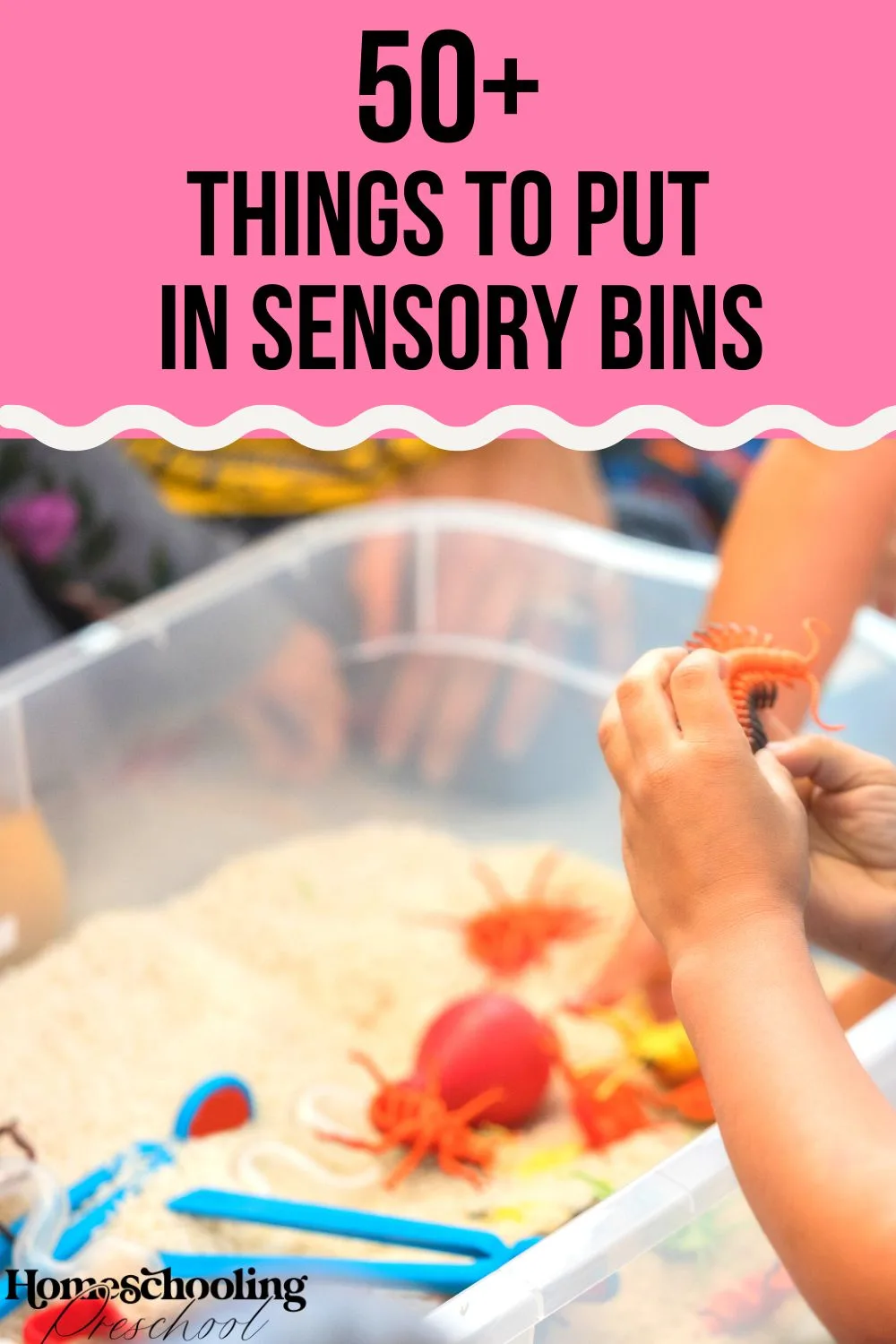
Things to Think About With Sensory Bins
Knowing your little ones that are using the sensory bin is important.
Some preschoolers stick things in their mouths (and ears and nose), while others don’t.
If you have a kid that puts things in his mouth, choose items for the sensory bin that won’t be harmful to them.
Water beads used to be a big thing people would put in sensory bins.
There have since been many children that have had life-threatening emergencies from water beads.
They are tiny and expand in water.
You can imagine this is an issue when one bead gets into a moist environment (like a throat or nose) and then it expands, cutting off oxygen flow.
For this reason, you won’t find water beads on this list of sensory bin fillers!
Things to Put in Sensory Bins
1. Shredded Paper
2. Dry Rice
3. Pom Poms
4. Dry oatmeal
5. Water (add food coloring for more fun)

6. Shaving cream
7. Ice
8. Dry beans
9. Cooked spaghetti
10. Sand
11. Salt
12. Flour
13. Jell-O
14. Pumpkin guts (perfect for Halloween!)
15. Pudding
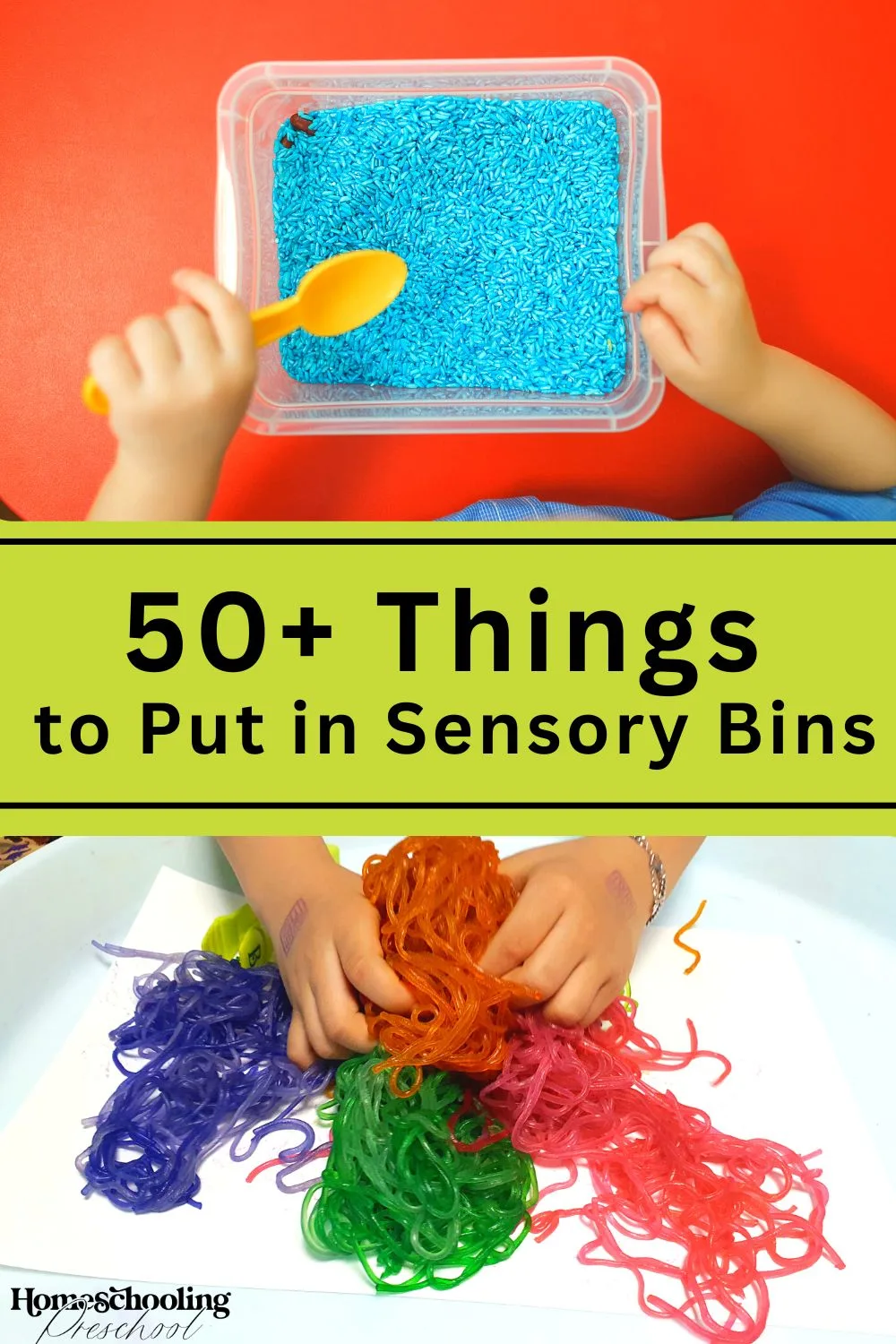
16. Dry corn
17. Straw
18. Cotton batting
19. Cut up straws
20. Small rocks
21. Coffee Beans (or dry grounds)
22. Baby Powder
23. Kinetic Sand
24. Cereal (dry)
25. Blitzed graham crackers (or cereal) — Put items in a food proccessor

27. Sea shells
28. Corn meal
29. Craft Feathers
30. Dry Pasta
32. Soapy water
33. Cotton balls
34. Confetti
35. Mud

36. Dirt
37. Sticks
38. Buttons
39. Packing peanuts
40. Grass
41. Lentils
42. Pine cones
43. Oobleck (cornstarch and water)
44. Plastic eggs
45. Baking soda (and vinegar)
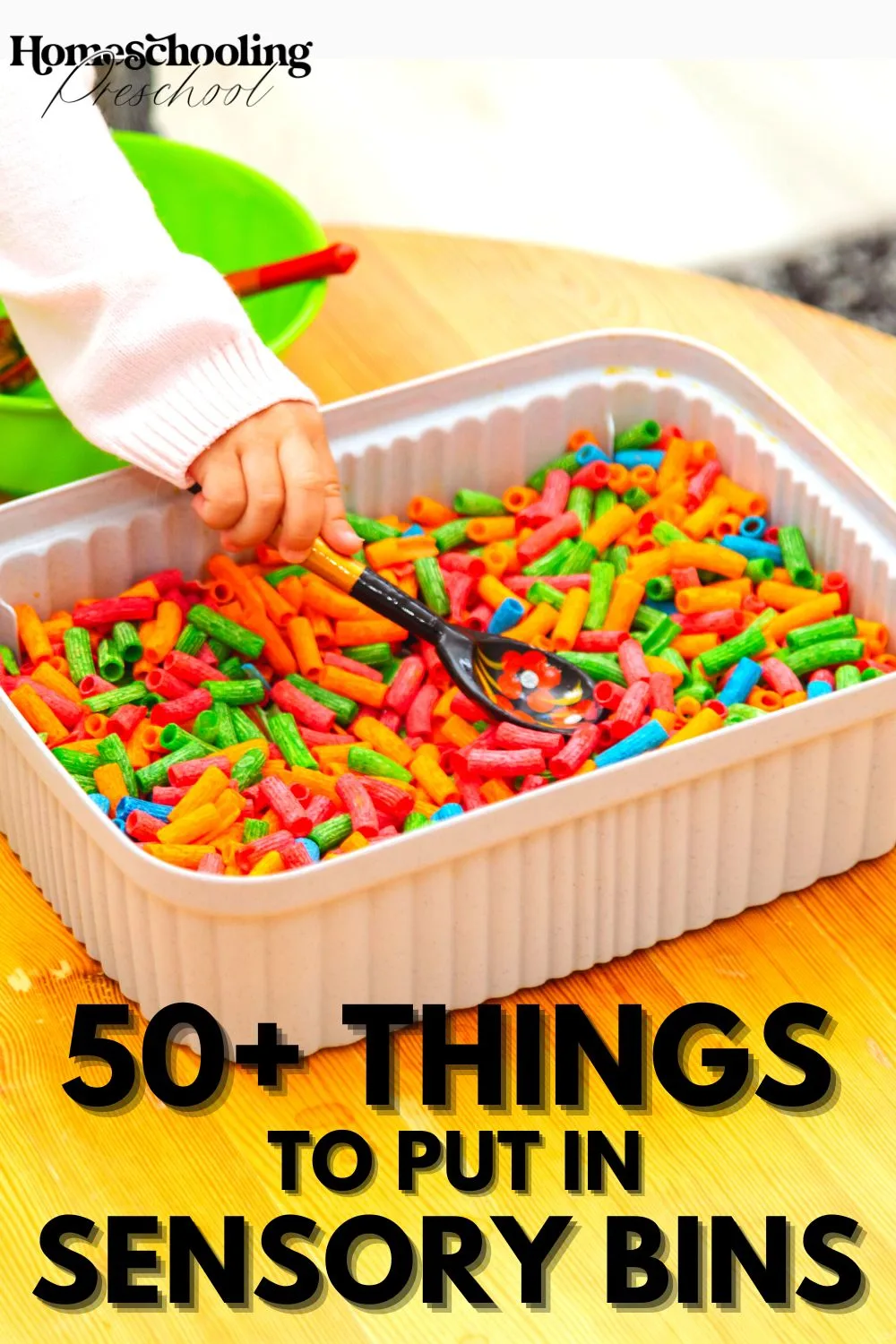
47. Puzzle pieces (great way to use up puzzles with missing pieces)
48. Pool Noodles (cut up into thin rings)
49. Tissue paper (can be cut into squares to fill the bin)
50. Crinkle Paper
51. Leaves
52. Chia seed slime
53. ABC pasta
54. Fake Snow
55. Dry chickpeas
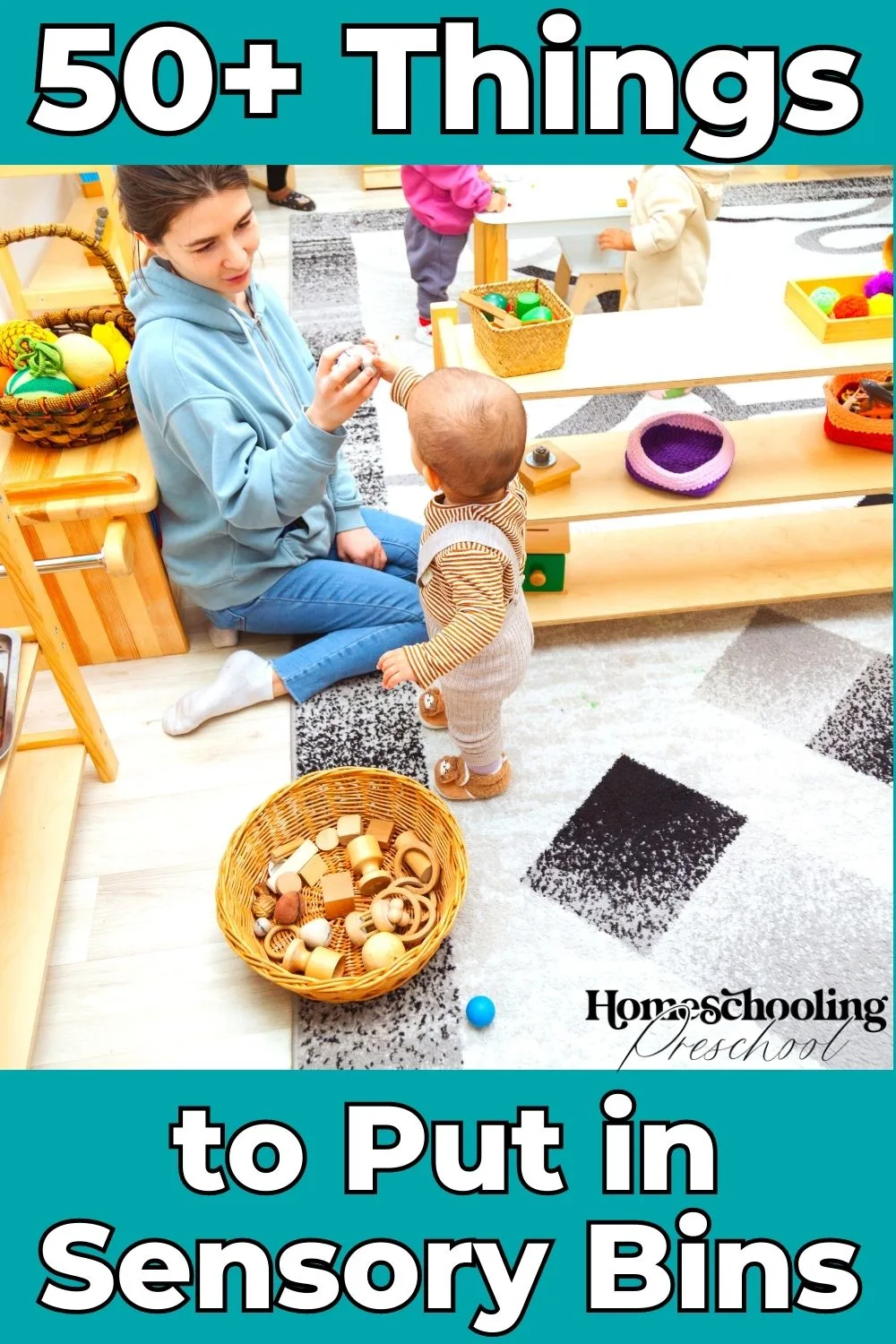
Sensory Bin Fillers
With all these choices for sensory bin fillers, you can choose a different sensory bin for each week and have ideas for over a year!
Grab some toys, letters, blocks, or animals, and your sensory bins will be ready in a jiffy.
